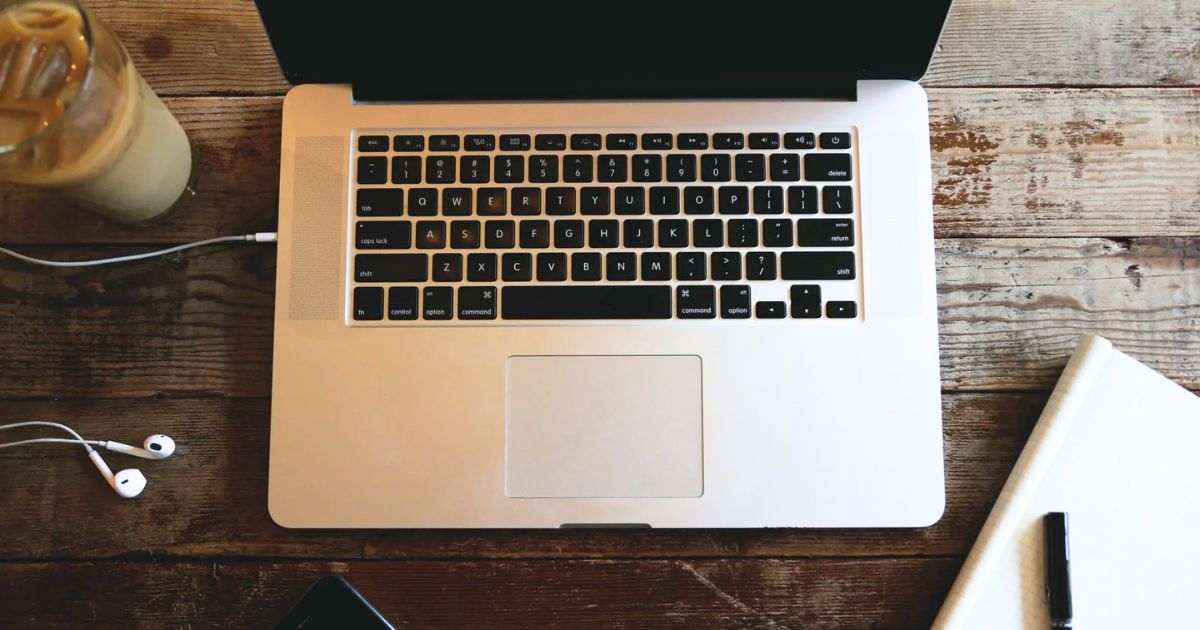プラスワンポイント監修
IELTS科目別対策記事一覧
IELTS総合対策記事

【2025年完全保存版】IELTSリーディン...
2025年1月1日更新
IELTS総合対策記事
IELTSリーディングは、他の主要な英語試験と比べても文章量が非常に多く、時間内に全て読むのが非常に大変と感じる方も多いでしょう。非常に独特な問題形式であること...
記事を読む
【2025年完全保存版】IELTSスピーキン...
2025年1月1日更新
IELTS総合対策記事
IELTSのスピーキングはひとりで練習することが難しく、またスコアの採点基準について日本語での正確な情報が少ないことから、対策が難しいと感じている方も多いようで...
記事を読む
【IELTS再採点(リマーク)】スコアが上が...
2025年3月16日更新
IELTS総合対策記事
IELTSの試験結果を受け取ったあと、実は「再採点(リマーク)」を申請できることはご存じですか?採点結果に不服がある場合、一定の費用はかかりますが、採点の見直...
記事を読むタスク1対策記事

解答例付!確実に20分で終わらせよう!ジェネ...
2024年10月11日更新
ライティング・タスク1対策記事
ジェネラル・モジュールでは、ライティングのタスク1の試験で、約20分で指定されたタスクに対して150語以上の手紙を作成します。配点はライティング試験全体の3分の...
記事を読むタスク2対策記事

Unit 3: アイデアが与えられている場合...
2025年3月21日更新
ライティング・タスク2対策記事
IELTSのライティング・タスク2ではタスクが与えられますが、中には「アイデア」も一緒に与えられている場合があります。このような場合、アイデアをそのまま使ってい...
記事を読む
肯定文ではmuchは使わない!?...
2025年1月29日更新
ライティング・タスク2対策記事
I have much money. 私はお金をたくさん持っています。このような文は、英語では不自然だということを聞いたことがあるかもしれません。確かに、「mu...
記事を読む
Unit 4: 誰にとっての話か、常識を働か...
2025年4月1日更新
ライティング・タスク2対策記事
IELTSのライティング・タスク2では、単に文章を書く技術だけでなく、タスクの文面を正しく読み解くリーディング力も非常に重要です。タスクに隠されたニュアンスや、...
記事を読む
Unit 9: 人の命を犠牲にしてでも?...
2025年5月3日更新
ライティング・タスク2対策記事
IELTSライティングでは、「Coherence and Cohesion(首尾一貫性とつながり)」が評価基準の1つになっています。これは、エッセイ全体の論理的...
記事を読む
エッセイ全体の流れから見るアイデアの妥当性...
2025年1月8日更新
ライティング・タスク2対策記事
まずは、このエッセイを見てみましょう。University education should be free for everyone, regardless ...
記事を読む
ソーシャルバリューとは?...
2025年3月27日更新
ライティング・タスク2対策記事
IELTSライティング・タスク2では、自分にとってあまり馴染みのない概念が出題されることがあります。皆さんは、「ソーシャルバリュー」という言葉を聞いたことがあり...
記事を読む
具体例のジレンマ:展開不足 vs 繰り返し...
2025年1月8日更新
ライティング・タスク2対策記事
エッセイの基本的な論理構成の作り方として、PREPと呼ばれる手法があります。PREPとは、以下の4つの要素を順に説明していく方法です。Point(結論)、Rea...
記事を読む
Unit 1: 時間・お金の無駄とは?...
2025年3月1日更新
ライティング・タスク2対策記事
「無駄なお金を使ってしまった」(お金の無駄)「時間の無駄だった」(時間の無駄)「頑張っただけ無駄だった」(努力の無駄)日常会話でもこのような表現を使うことがよく...
記事を読む
Unit 5: メインアイデアで直接回答する...
2025年4月8日更新
ライティング・タスク2対策記事
トピックセンテンスとは、その段落でどのようなことを議論しようとしていて、それに対して書き手がどのように主張をする予定であるか、を簡潔にまとめた文です。前者のこと...
記事を読む
議論の流れを途切れさせる事実の紹介...
2025年1月31日更新
ライティング・タスク2対策記事
話の流れが途切れてしまった例。まずは、こちらの段落を読んでみましょう。The main reason for the rising cost of weddin...
記事を読む
最初の10分で勝負あり!プランニングの方法と...
2024年10月27日更新
ライティング・タスク2対策記事
IELTSのライティングでは、表現力(語彙・文法)に加えて、論理性・明瞭性などのコミュニケーション能力も評価されます。そのため、ライティング・タスク2では、エッ...
記事を読む
6.0以上では必須知識!トピックセンテンスは...
2024年10月27日更新
ライティング・タスク2対策記事
IELTSのライティング・タスク2は『Band Descriptors』と呼ばれる4つの採点基準に従って評価されます。そのうち、Lexical Resource...
記事を読む
最上級・ONLYなどの極論に対するagree...
2025年1月7日更新
ライティング・タスク2対策記事
IELTSライティングのタスク2の問題の中には、いわゆる「極論」を取り上げるものがあります。極論とは、以下のような表現がタスクの中に含まれているものです。all...
記事を読む
Unit 7: その意味、伝わっていますか?...
2025年4月23日更新
ライティング・タスク2対策記事
IELTSのライティングでは、内容面での論理性と明瞭性が重要であることは言うまでもありませんが、仮にしっかりプランニングできたとしても、今度はそれを英語で表現す...
記事を読む
既知の情報から未知の情報へ...
2025年1月22日更新
ライティング・タスク2対策記事
英語のエッセイにおいて、話の流れをスムーズにする(読み手を驚かせない)ためのテクニックの1つとして「既知の情報から未知の情報へ」の流れを意識することが挙げられま...
記事を読む
ライティング・タスク2 問題タイプ別回答の注...
2025年3月18日更新
ライティング・タスク2対策記事
IELTSのライティングは4科目のなかで最も平均点が低く、多くの受験者を悩ませています。特にライティング・タスク2はライティング・タスク1に比べて配点が大きく、...
記事を読む
上級者でも間違えがちな動詞...
2025年1月22日更新
ライティング・タスク2対策記事
「let」と「allow」は上級者でも間違えやすい動詞です。どちらも「許可する」という意味を持ちますが、使い分けに注意が必要です。let: (したいように)させ...
記事を読む
Unit 2: 利点ではなく強い根拠を...
2025年3月12日更新
ライティング・タスク2対策記事
IELTSのライティング・タスク2ではエッセイを書きますが、好き勝手に意見を述べるだけでは目標とするスコアを取ることは難しいのが現状です。なぜなら、IELTSで...
記事を読む
上級者でも間違えがちな形容詞...
2025年1月22日更新
ライティング・タスク2対策記事
「economic」と「economical」は上級者でも間違えやすい形容詞です。どちらも「経済の」「経済に関する」という意味を持ちますが、使い分けに注意が必要...
記事を読む
IELTS採点基準表(Band Descri...
2025年1月7日更新
ライティング・タスク2対策記事
Task Response 9 - fully addresses all parts of the task, -presents a fully devel...
記事を読む
Unit 6: トピックセンテンスは簡潔に...
2025年4月16日更新
ライティング・タスク2対策記事
トピックセンテンスは段落の主旨を示す重要な文です。この段落でどのようなことを議論するのかという「トピック」と、そのトピックに対するメインの主張である「メインアイ...
記事を読むスピーキング対策記事
ニュースレター

IELTSスピーキング、まずやるべきことは!...
2025年3月24日更新
ニュースレター
こんにちは! プラスワンポイントのルイです^^ 今回はスピーキング練習方法の続き、スピーキングに苦手意識がある人が、「まずやるべきこと」であり、スピーキングに伸...
記事を読む
IELTSスピーキングが苦手なあなたへ。最初...
2025年3月19日更新
ニュースレター
こんにちは! プラスワンポイントのルイです^^ スピーキングの練習、うまくできていますか? 「日本にいて、練習相手がいない」 「どうやって練習したらいいかわから...
記事を読む
リーディング、2回目以降を解く意味とは?...
2025年1月13日更新
ニュースレター
こんにちは! プラスワンポイントのルイです^^ みなさんは、リーディング、リスニングの学習でCambridge公式問題集を活用していますか? このメルマガでも何...
記事を読む
映画やドラマを使った英語学習方法!...
2025年1月2日更新
ニュースレター
新年明けましておめでとうございます! プラスワンポイントのルイです^^ お正月、ほとんどの方は、少なくとも3日くらいは連休を取ることができるのではないでしょうか...
記事を読む
日本語の参考書 vs Cambridge公式...
2024年12月20日更新
ニュースレター
みなさんこんにちは! プラスワンポイントのルイです^^ 12月も後半、もうクリスマスも直前というところですが、年末年始の学習計画は順調に進んでいますか? そうで...
記事を読む
IELTS専門のライティング添削ってどんなの...
2024年12月2日更新
ニュースレター
みなさんこんにちは! プラスワンポイントのルイです^^ 12月ですね!年末年始は願書の受付が始まる時期だったりするので、IELTS学習も追い込みをかけて、集中的...
記事を読む
リーディングで時間が足りない!<...
2024年11月27日更新
ニュースレター
「読むのが遅くて、いつも最後まで解けません」 「時間がなくて焦ってしまって、うまく頭に入ってこないんです」 このように、リーディングで困っている方、多いんですよ...
記事を読む
続★実践ベースで単語を覚える!<...
2024年11月21日更新
ニュースレター
こんにちは^^ プラスワンポイントのルイです! ゴールドコーストでは連日猛暑で28度〜30度を超えることもあった気温が、一昨日から雨のおかげでずいぶん下がり過ご...
記事を読む
語彙強化方法★その2<br c...
2024年11月18日更新
ニュースレター
こんにちは^^ プラスワンポイントのルイです! 今日もIELTS学習、がんばって取り組んでいますでしょうか? ちょっと前回から時間が空いてしまいましたね。今年は...
記事を読む
語彙強化方法★その1<br c...
2024年10月25日更新
ニュースレター
こんにちは^^ プラスワンポイントのルイです! 日本では、秋も深まってきたはずなのになぜか夏日のような日が突然やってきたりしているようですが、みなさん元気にIE...
記事を読む
リーディング究極の練習法...
2024年10月18日更新
ニュースレター
こんにちは^^ プラスワンポイントのルイです! 今回のお話ですが、久々にリーディングについてです。 「リーディングが苦手です〜> ......
記事を読む
ライティングレッスンを受講するメリットとは?...
2024年10月11日更新
ニュースレター
こんにちは! プラスワンポイントのルイです^^ さて今回は、ライティングに取り組む上でのレッスンを受講するメリットをお伝えしますね。 目次 01 ......
記事を読む
リスニングは<br class...
2024年10月9日更新
ニュースレター
こんにちは^^ プラスワンポイントのルイです! いきなりですが、リスニングは得意な方ですか?苦手な方ですか? 以前(と言っても10年くらい前)は、リスニングはI...
記事を読む
独学で絶対にやっておきたいこと!...
2024年9月27日更新
ニュースレター
独学で絶対にやっておきたいこと! それは、リスニング、リーディングのスコア確認です。 リスニング、リーディングは解説がないと、よく理解できない。 だから、解説の...
記事を読む
プラスワンポイントが提供するIELTS無料コ...
2024年9月23日更新
ニュースレター
これを読んでくださっている方は、もうすでにご覧になっている方も多いかと思いますが、プラスワンポイント講師の知識やメソッドを結集した記事です。 IELTSをやるな...
記事を読む
スピーキング奥の手!<br c...
2024年9月19日更新
ニュースレター
こんにちは^^ プラスワンポイントのルイです。まだまだ残暑が厳しいですね。 体調を崩したりされていませんでしょうか? やらなきゃならないことはたくさんあるかと思...
記事を読む
ライティングで最も重要なスキル!...
2024年9月16日更新
ニュースレター
こんにちは^^ プラスワンポイントのルイです。お元気でお過ごしでしょうか? 突然ですが、みなさんはIELTSでどの科目が一番苦手ですか? みなさんのご相談の内容...
記事を読む
IELTS勉強が手につかない>...
2024年7月19日更新
ニュースレター
こんにちは^^ プラスワンポイントのルイです。お元気でお過ごしでしょうか? 「IELTSやらなきゃいけないとわかっているのに、やる気出ないな。。。」 「今日も(...
記事を読む
IELTSをこれから始めるなら〇か月...
2024年6月29日更新
ニュースレター
こんにちは^^ プラスワンポイントのルイです。いかがお過ごしでしょうか? 前回は、IELTSの対策期間について、「〇か月で+1.0」とか、「バンドスコア7.0の...
記事を読むIELTS体験談・紹介記事

IELTS(アイエルツ)合格への近道〜プラス...
2015年3月17日更新
紹介記事
本日は、IELTSのスコアアップを目指す方におすすめの学校「PlusOnePoint(プラスワンポイント)」をご紹介します。プラスワンポイントは、ゴールドコース...
記事を読む
IELTSを勉強するならまずこれを読むべし!...
2021年8月20日更新
紹介記事
と偉そうなタイトルを付けましたが、私のIELTS解説ではなく他力本願な内容です。コロナ禍でオーストラリアの国境は閉じていますが、だからこそ「今のうちにIELTS...
記事を読む
IELTSライティング7.0|PlusOne...
2020年8月22日更新
紹介記事
前回のブログでIELTSライティング7.0を独学で取得した勉強法についてシェアしました。正しい方向に向って努力すれば独学で7.0は不可能ではありませんが、簡単な...
記事を読む
IELTSライティング|独学で7.0を取得し...
2020年8月15日更新
紹介記事
こんにちは、Mari(@Mari_Nurse_SA)です。IELTSのライティングは、多くの受験者が苦労するセクションです。私も例外なくライティングに悩まされ最...
記事を読む
IELTS OA7.5取得|IELTS学習前...
2020年7月4日更新
紹介記事
多くの方はIELTSを留学、移住、資格取得など人生が大きく関わる理由で受けています。数回の受験で目標スコアが取れればよいですが、そうはいかない場合もあります。思...
記事を読む
IELTSでようやく目標スコアを達成!...
2024年9月23日更新
紹介記事
ブログ読者の皆さま、お久しぶりです。長いことブログを更新しないうちに、気付けばパースの季節も冬から春になり、ワイルドフラワーが綺麗に咲いております黄色い花 8月...
記事を読む
IELTS奮闘記①Writingの壁に気付く...
2020年9月25日更新
紹介記事
人生初めてのIELTS受験は渡豪直後の2018年10月でした。ソーシャルワークの大学院に行きたい!と決めて2週間後のこと。英語に関しては一応根拠のある自信があり...
記事を読む
IELTS奮闘記②心が折れる...
2020年9月27日更新
紹介記事
日本人経営の塾は入学金と2回のオンラインセッション、Writingの添削5回分で合計7万円強と、定職に就かない私にとってはかなり勇気の要る出費でした。しかしもう...
記事を読む
IELTS奮闘記③IELTSの勉強再開...
2020年9月28日更新
紹介記事
私はポッキリ折れた心を学校の勉強やバリスタ修行、バイト、ボランティア等で紛らわしながら日々を過ごしていました。特に2019年の11月以降はホスピタリティの仕事を...
記事を読む
IELTS奮闘記④救世主現る...
2020年10月1日更新
紹介記事
私のIELTS勉強に付き合ってくれていた友人が送ってくれたリンクは衝撃的でした。(ちなみにそのリンクはこちらです。)→2021.9.3追記:現在は上記のリンクは...
記事を読む
IELTS奮闘記⑤12週間チャレンジに当選!...
2020年10月5日更新
紹介記事
神、改めHibiki先生が12週間チャレンジの応募を開始されます。私は正直「選ばれたら嬉しいけれども、まぁそんな簡単に選ばれるだなんてオイシイ話はないよな…。チ...
記事を読む
IELTS奮闘記⑥爆弾投下(オーストラリア・...
2020年10月10日更新
紹介記事
皆さま、お待たせいたしました課題の提出にバタバタしておりましたため(単に期限をすっかり忘れていただけ)、更新が滞っていましたが、IELTS奮闘記の続きです。12...
記事を読む
IELTS奮闘記⑦光が見える(オーストラリア...
2020年10月20日更新
紹介記事
寝ている時間以外はずーっとエッセイのことを考えていた私(と、同士のkobuさん)。12週間チャレンジが始まって一週間で、もう正直ヘトヘトで、学校に行くと「え?!...
記事を読む
IELTS奮闘記⑧沼(オーストラリア・パース...
2020年10月31日更新
紹介記事
よし、良い調子だぞ!と自信を持って2週間後の試験に申し込み。しかし、少しずつ暗雲が立ち込めてきます…これまでトピックセンテンスから2文目・3文目と具体化していく...
記事を読む
IELTS奮闘記⑨壁は超えられる(オーストラ...
2020年11月1日更新
紹介記事
ほとんど寝ていない、かつ試験会場が遠かったため(この日初めてUWAの試験会場にて受験)、この日のコンディションは最悪。Listeningは聞き逃しまくるし、Wr...
記事を読む
IELTS奮闘記⑩失敗から得た教訓その1(オ...
2020年11月5日更新
紹介記事
さて、私は初回受験から約2年(と言っても途中心が折れてお休みしていたので、勉強した期間は実質8カ月ほど)、11回の受験でW7.0を取得するに至り、最終的には16...
記事を読む
IELTS奮闘記⑩失敗から得た教訓その2(オ...
2020年11月7日更新
紹介記事
さてまとめにならなかった、前回のまとめの続きです。笑④優先順位を考え、時間を注ぎ込む私も元サラリーマンですので、働きながらIELTSの勉強をすることがどれだけ大...
記事を読む
PlusOnePointのIELTS12週間...
2021年2月2日更新
紹介記事
こんにちはSayaです。今回はPlusOnePoint さん(以下敬称略)の授業を体験してきたレポートの第二弾です。PlusOnePoint は、オーストラリア...
記事を読む
PlusOnePointでIELTSを学ぶメ...
2021年10月29日更新
紹介記事
こんにちは、Saya です。この度、PlusOnePointさん(以下敬称略)から体験授業の機会をいただき、IELTSの授業を体験させていただきました!その体験...
記事を読む
【IELTS Band 7.5取得】おすすめ...
2023年10月10日更新
紹介記事
こんにちは、Sayaです。IELTSの学習者のみなさん、学習の調子はいかがでしょうか?中には、なかなか上手く進まない方も多くいらっしゃるかもしれません。私の場合...
記事を読む
【IELTS動画】無料のIELTS学習用Yo...
2023年10月10日更新
紹介記事
みなさん、IELTSの学習いかがでしょうか?停滞気味の人も、順調に進んでいる人も、始めたばかりで、何から初めて良いのか・・・と思っている人も、YouTubeを見...
記事を読む
【IELTS教材レビュー】『英語ライティング...
2023年11月13日更新
紹介記事
こんにちは、Sayaです。さっそくですが、私も数ヶ月前からTwitterで話題になっていた高橋響先生の「英語ライティング鬼の100則」を買って読みました!そして...
記事を読む
IELTSライティングの効率的な勉強方法10...
2024年2月16日更新
紹介記事
こんにちは、Sayaです。今回の記事ではIELTSライティングの効率的な勉強方法10選をご紹介していきます。私が今回の勉強方法を選択するにあたり、最も注目してい...
記事を読む
【IELTSライティング】パラフレーズ4つの...
2021年2月21日更新
紹介記事
こんにちは、Sayaです。今回は、IELTSの4技能の中でも鬼門と呼ばれる「ライティング」のお話です。ご存知の方も多いかと思いますが、ライティングのコツの一つは...
記事を読む
【IELTSライティング】パラフレーズ4つの...
2021年2月21日更新
紹介記事
こんにちは、Sayaです。今回は、IELTSの4項目の中で、点数が伸びにくいのはライティングとスピーキングのうちIELTSのライティングの勉強方法の一つである「...
記事を読む
IELTS高得点のコツ(ブリスベン生 大学生...
2014年9月9日更新
紹介記事
というわけで、昨日のブログの記事(オーストラリアに永住するために、永住権)に引き続き、IELTSの日本人の為の日本人によるIELTSのクラスの話。体験クラスに行...
記事を読む
現地語学学校とプラスワンポイント、日本語で学...
2014年9月9日更新
紹介記事
自分はオーストラリア来てから語学学校に行ったけど、実はその半分近くはIELTSクラスに費やしてて、IELTSのクラスがわからな過ぎて胃炎(><;)になったくらい...
記事を読む
IELTS対策におすすめのオンライン英会話1...
1970年1月1日更新
紹介記事
IELTSのスピーキング対策をオンライン英会話でしたい。海外留学・海外移住のためにIELTS対策できる短期集中のオンライン講座を受けたい。なるべく安い料金のオン...
記事を読む
